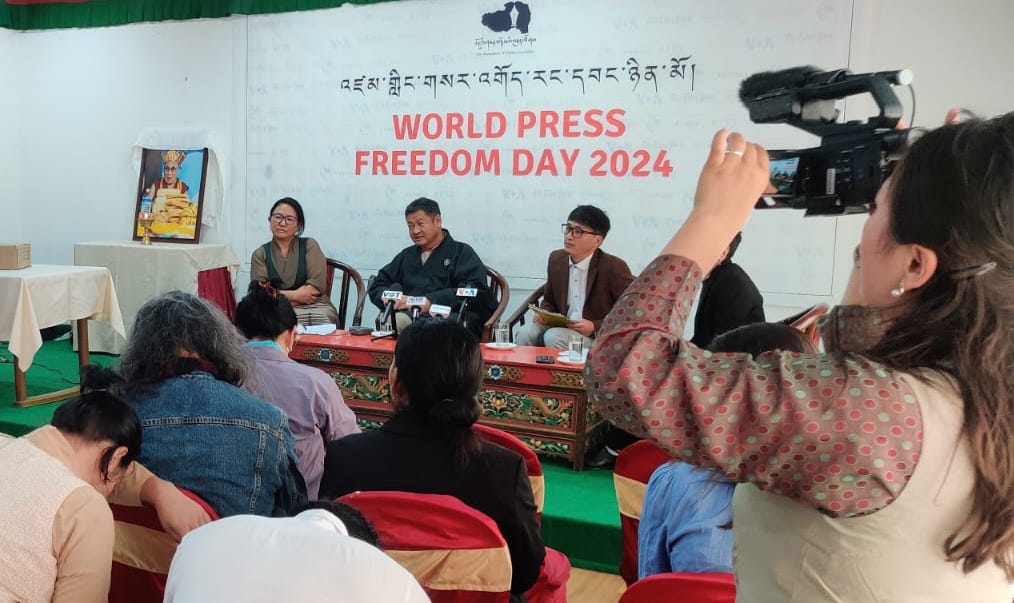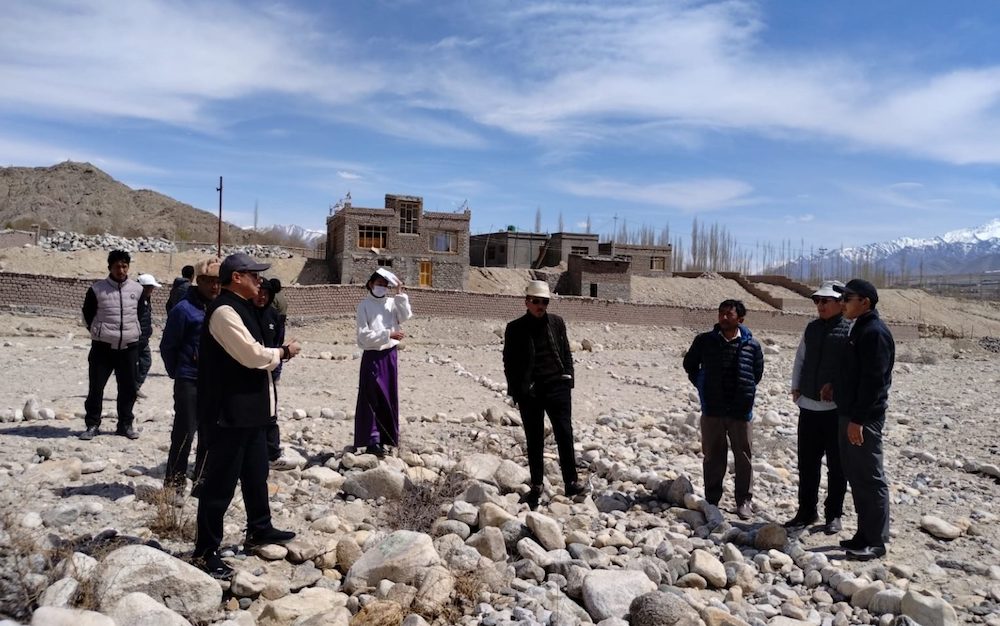By Jonathan Mirsky AP
LONDON – Prime Minister Tony Blair is going to Beijing in July. Ngawang Sangdrol, a tiny Tibetan nun now in London, wants Blair to press China’s leaders to negotiate with the Dalai Lama.
In 2002, Ngawang Sangdrol was serving a sentence of 21 years, the longest time in prison ever handed down to a Tibetan nun, when she was freed from Lhasa’s Drapchi prison. Her release, after 11 years, followed an international campaign to free her.
It came in October 1992, when President Jiang Zemin of China visited President George W. Bush’s ranch at Crawford, Texas. Once again, a Chinese leader’s eagerness to play the dissident card to improve his relationship with an American president had worked: Beijing looked as if it was loosening up.
But behind every Chinese or Tibetan dissident who rises to the top of the list from which such deals are made, there are many more whose suffering is intense and unpublicized.
Ngawang Sangdrol was first arrested in 1990 when she was 13. Along with 12 other nuns she had been shouting independence slogans outside the Norbulingka, once the Dalai Lama’s summer residence.
Too young to prosecute, she was held for nine months, beaten with iron pipes and tortured with electric police batons. Rearrested in November 1992, she was sentenced to three years in Drapchi prison. The charge was the Chinese catch-all: “counterrevolution.” By Sept. 22, 1993 her sentence was extended by six years for singing nationalist songs; on June 21, 1996, eight more years were added because she had declined to stand up for an official who entered her cell. In May of 1998, after she and other prisoners shouted freedom slogans, she received six further years and was badly beaten.
Another ex-prisoner, Norzin Wangmo recalled her condition: “We thought she was dead We had to wait a long time for her to stand up There were so many people beating her that we couldn’t see her when she had fallen down.”
An intense child-sized woman, Ngawang Sangdrol says she refused to stand for the Chinese official who entered her cell, knowing that this would earn her a severe beating. “They didn’t respect the Dalai Lama; why should I show them respect?” She was sometimes forced to stand at attention with a cup of water on her head and paper between her knees. If she dropped the paper or spilled the water a beating immediately followed. Allowed to wash their clothes once a month and forced to shared a toilet bucket which was emptied once daily, she and the other nuns in her cell were outfitted in new uniforms when foreigners visited Drapchi prison, and ordered to burn incense to disguise the smell in their small space. She never saw the foreigners.
How did she survive? “I knew I was doing the right thing,” she says “It was an offense but I prayed secretly. I thought I would die in prison but now I am recovering.”
Released in 2002 and permitted to leave Tibet in March of this year, she has spent most of her life from the age of 13 behind bars for nonviolent acts. In Tibet, China’s largest and most sensitive region, such nuns and monks are seen by Beijing as seditious and the result of continued meddling by the “criminal splittist Dalai Lama.”
Ngawang Sangdrol wants Blair, during his trip to China, to urge the leadership to negotiate directly with the Dalai Lama about his proposition that Tibet become a self-governing, autonomous region of the People’s Republic. She says she has abandoned her zeal for independence and accepts the Dalai Lama’s compromise.
Chinese flexibility is unlikely. China’s new president, Hu Jintao, was party secretary in Lhasa, the Tibetan capital, in 1989 when martial law was declared, months ahead of its imposition during the Tiananmen demonstrations. I recall Hu saying then that Tibetans were dangerous and unruly.
When she came out of prison Ngawang Sangdrol noticed that there were more lights, taxis, and shops in Lhasa. “But they are owned by Hans [ethnic Chinese] so they get the benefit. And what is the same is that everyone is very afraid.”
The writer is a London-based journalist specializing in Chinese affairs. He has been to Tibet six times.









